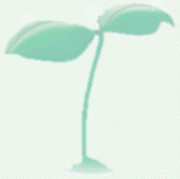|
|
Education reform: Learning and teaching paradigm shift |
In the recent
years, the HKSAR Government has been actively launching education reform.
Among others, curriculum reform is central to the various reform
initiatives. Focusing on this, Education Reform: Learning and Teaching
Paradigm Shift is chosen to be the theme of this issue of the Journal.
It attempts to provide readers with articles covering both theoretical
discussions and practical experiences for stimulating reflections and
professional discourses among school practitioners and academics.
This issue of the JQSE includes two sections. The first section contains
seven articles. Other than theoretical and academic papers, there are also
practical experiences shared by individual schools. In the second section,
two invited reports prepared by the colleagues of the Curriculum
Development Institute are presented.
On curriculum integration, Professor John Lee systematically discusses and
analyses related concepts, and provides future directions on
implementation in Hong Kong schools. Professor Ai-lan Fu and Ming-yuan
Zhang suggest concrete ways in three different aspects on enhancing
teachersˇ¦ effectiveness in teaching Chinese language through Putonghua.
This article will facilitate the Government, education institutes, schools
and teachers to rethink about current practices in Chinese language
teaching.
Dr. May May-hung Cheng and Ms Kitty Yee-ki Ching explore the possibilities
of facilitating professional development of science teachers through the
use of information technology as implemented in an international research
project called Schools Around the World (SAW) Program. Other than this, we
also have Mr. Chi-hung Cheung and Professor John Lee who report their
findings of studying the influence of mastery learning on Primary Three
studentsˇ¦ mathematics learning outcomes.
Dr. Ming-fai Hui elaborates how to make use of the school context in
developing studentsˇ¦ creativity. Her paper reviews the contemporary
definitions of creativity and differentiates between the concepts of
creativity, creative thinking and creative ideas in the school context.
Six different examples of school practices in fostering creativity are
discussed and issues arising from these are also highlighted. We also have
Ms. Suet-yee Lo shared with us her experience in launching the Social
Research Project Competition for exploring the different forms of
project learning at the upper secondary level. She introduces three
different curriculum paradigms, followed by discussions on their
application for project learning. Finally, Mr. Wai-choi Leung shares with
us the effective ways of implementing gifted education in a school-based
approach.
To enrich this issue, we have invited two curriculum reports on language
education from the Curriculum Development Institute. The first report
focuses on the major issues in the recent development of English language
education and aims at helping teachers understand how quality school-based
English language curriculum could be implemented. The second report
provides a comprehensive view on the development and future direction of
the Chinese language education in Hong Kong.
Taking this opportunity, I would like to express my deepest gratitude to
all of the authors, and sincerely hope that these theoretical conceptions
and valuable experiences can provide insights to the school practitioners
in overcoming obstacles encountered in the current education reform.
Last but not least, the theme of Volume 4 of the JQSE is tentatively
Education Reform: Support for Student Learning and Development. You
are most welcome to contribute to the JQSE. With your contributions, we
hope that a local knowledge base can be developed for providing quality
school education to our next generation.
